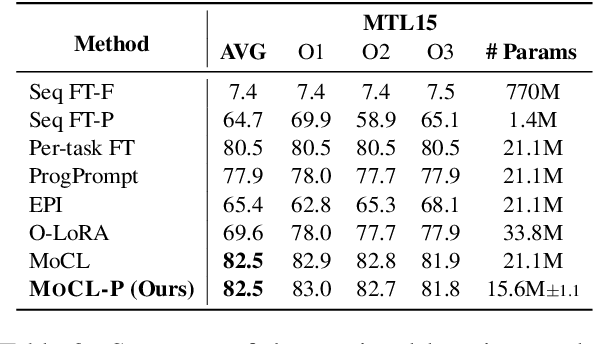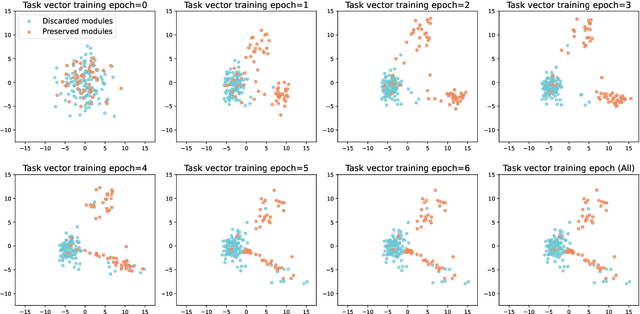Learn it or Leave it: Module Composition and Pruning for Continual Learning
Paper and Code
Jun 26, 2024



In real-world environments, continual learning is essential for machine learning models, as they need to acquire new knowledge incrementally without forgetting what they have already learned. While pretrained language models have shown impressive capabilities on various static tasks, applying them to continual learning poses significant challenges, including avoiding catastrophic forgetting, facilitating knowledge transfer, and maintaining parameter efficiency. In this paper, we introduce MoCL-P, a novel lightweight continual learning method that addresses these challenges simultaneously. Unlike traditional approaches that continuously expand parameters for newly arriving tasks, MoCL-P integrates task representation-guided module composition with adaptive pruning, effectively balancing knowledge integration and computational overhead. Our evaluation across three continual learning benchmarks with up to 176 tasks shows that MoCL-P achieves state-of-the-art performance and improves parameter efficiency by up to three times, demonstrating its potential for practical applications where resource requirements are constrained.
 Add to Chrome
Add to Chrome Add to Firefox
Add to Firefox Add to Edge
Add to Edge